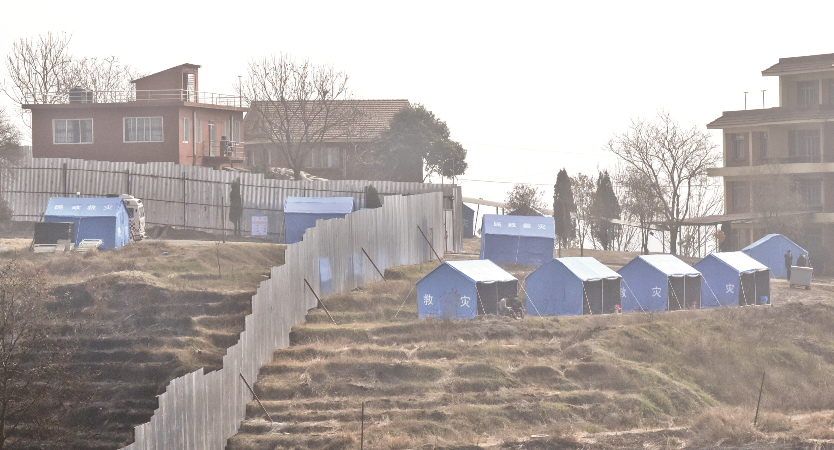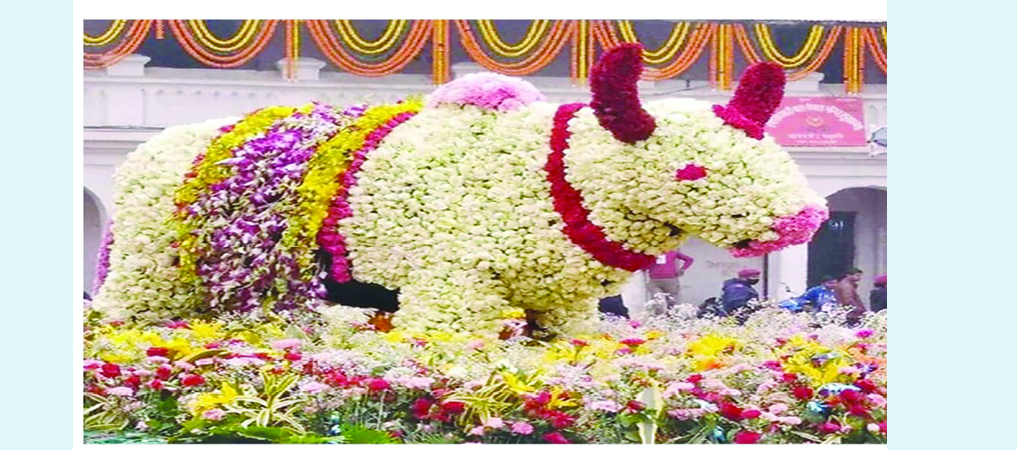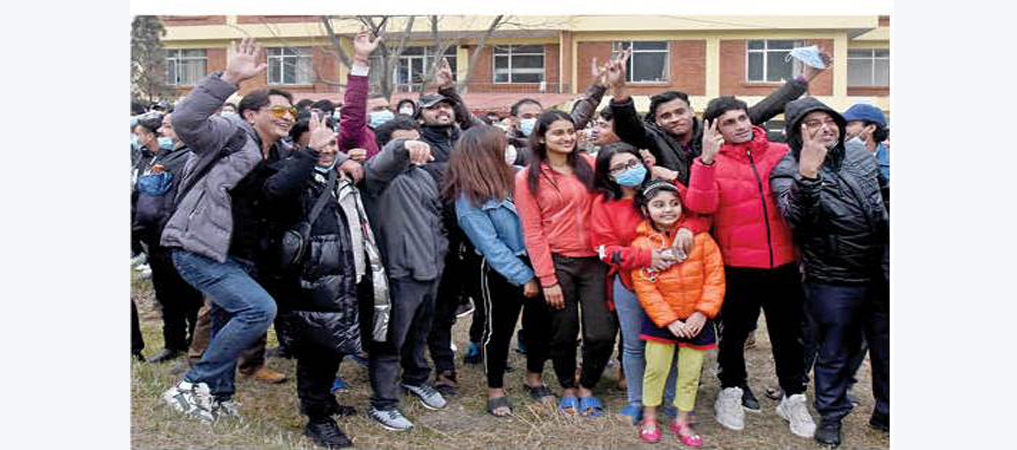Amid Omicron risks, following health protocol vital

By Sampada A. Khatiwada
Kathmandu, Nov. 29: The variant of coronavirus classified as B.1.1.529 and named Omicron has raised concerns all across the world as it is reported to be highly contagious.
The variant, first identified in South Africa on November 24, has already spread to dozens of countries including Australia, Belgium, Botswana, Germany, Hong Kong, Israel, Italy, and India.
On November 26, the World Health Organisation (WHO) labeled Omicron as the Variant of Concern, stating that the variant was more transmissible, virulent, and posed an increased risk of reinfection.
Following the outbreak of a new, supposedly deadlier, variant, many countries have already imposed travel restrictions for people from South Africa and its neighbouring
countries.
The Ministry of Health and Population (MoHP) has also made a week-long quarantine mandatory for people traveling from or via South Africa.
As India has confirmed two cases of the new variant, the public health specialists have been voicing that Nepal too is at a high risk of Omicron.
The Health Ministry is preparing to strengthen all its means to fight the new variant. Dr. Krishna Prasad Poudel, spokesperson at the MoHP, said, "We have already alerted the concerned authorities about the new variant and have called them to increase surveillance."
"As the risk of COVID-19 persists, directives issued earlier can be implemented again to prevent the new strain from entering Nepal. We have also decided to set up health desks at entry points, including at the international airport," said Dr. Poudel.
He added, "Although the situation is not worrisome yet, the risk exists. Thus, we must opt for high alertness and should continue following the public health measures prescribed by the government.”
Public health specialist Dr. Samir Mani Dixit said, "Omicron is a new strain of SARS-CoV-2 and since the virus was reported only a few days ago, we do not know much about it yet."
He added, "The preliminary investigations have revealed that the new strain is highly contagious but we do not know anything other than that. Concerns as to the effectiveness of vaccines against Omicron, chances of reinfection, and the nature of the infection are still unknown."
"Thus, we are currently in a wait-and-see situation to ascertain the nature of the new strain. However, we should continue following the public health standards such as washing hands frequently, wearing masks, and maintaining social distance," said Dr. Dixit, adding that the vaccination drive should be intensified to the utmost possible extent and the public should participate in it without hesitating.
Dr. Jageshwor Gautam, former spokesperson at the MoHP, said, as the cases of Omicron have already been detected in India, it can enter Nepal any time.
"We do not have any alternative other than abiding by the public health protocols to stay safe from the new strain," he added.
Recent News

Do not make expressions casting dout on election: EC
14 Apr, 2022
CM Bhatta says may New Year 2079 BS inspire positive thinking
14 Apr, 2022
Three new cases, 44 recoveries in 24 hours
14 Apr, 2022
689 climbers of 84 teams so far acquire permits for climbing various peaks this spring season
14 Apr, 2022
How the rising cost of living crisis is impacting Nepal
14 Apr, 2022
US military confirms an interstellar meteor collided with Earth
14 Apr, 2022
Valneva Covid vaccine approved for use in UK
14 Apr, 2022
Chair Prachanda highlights need of unity among Maoist, Communist forces
14 Apr, 2022
Ranbir Kapoor and Alia Bhatt: Bollywood toasts star couple on wedding
14 Apr, 2022
President Bhandari confers decorations (Photo Feature)
14 Apr, 2022











